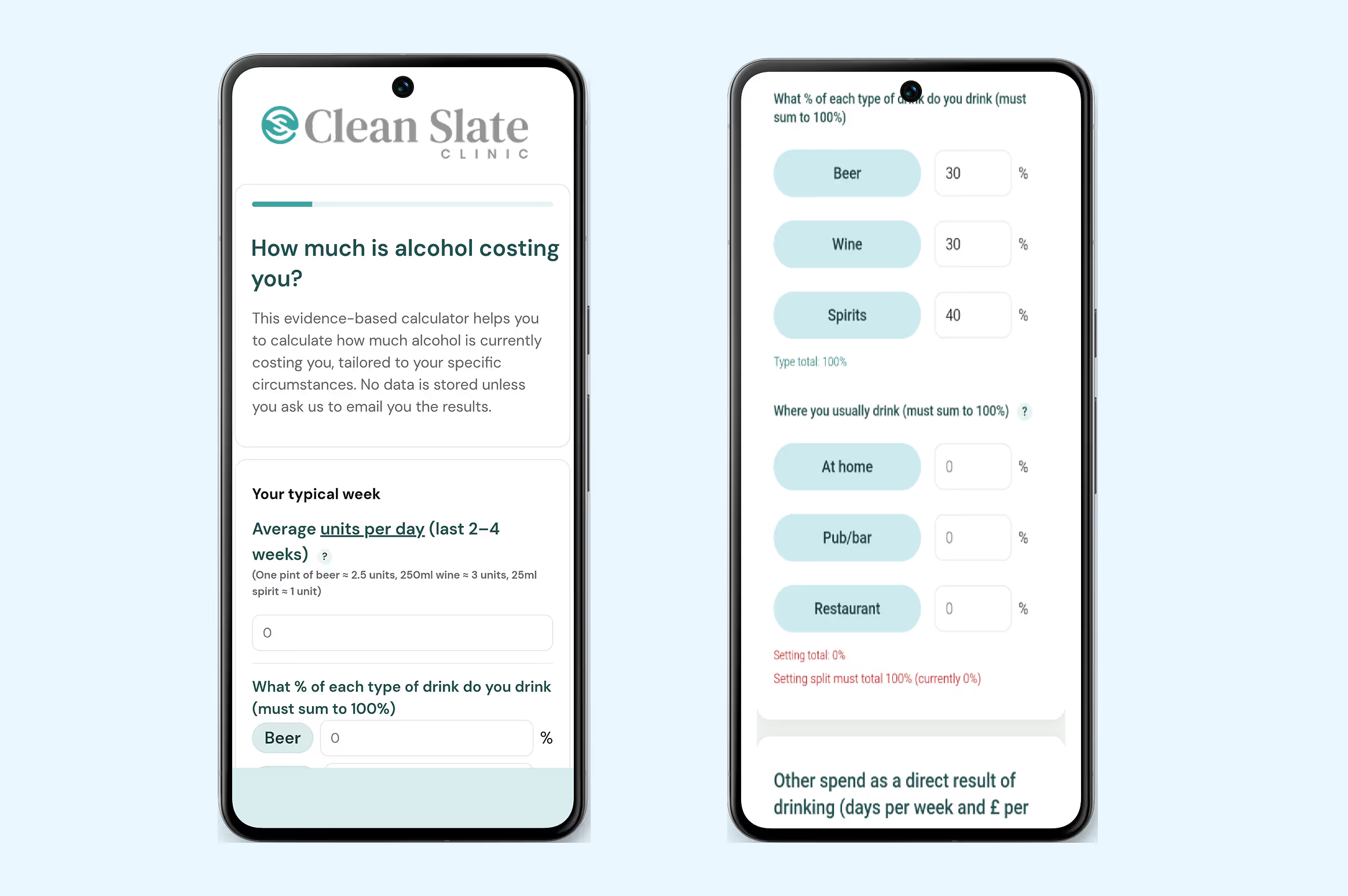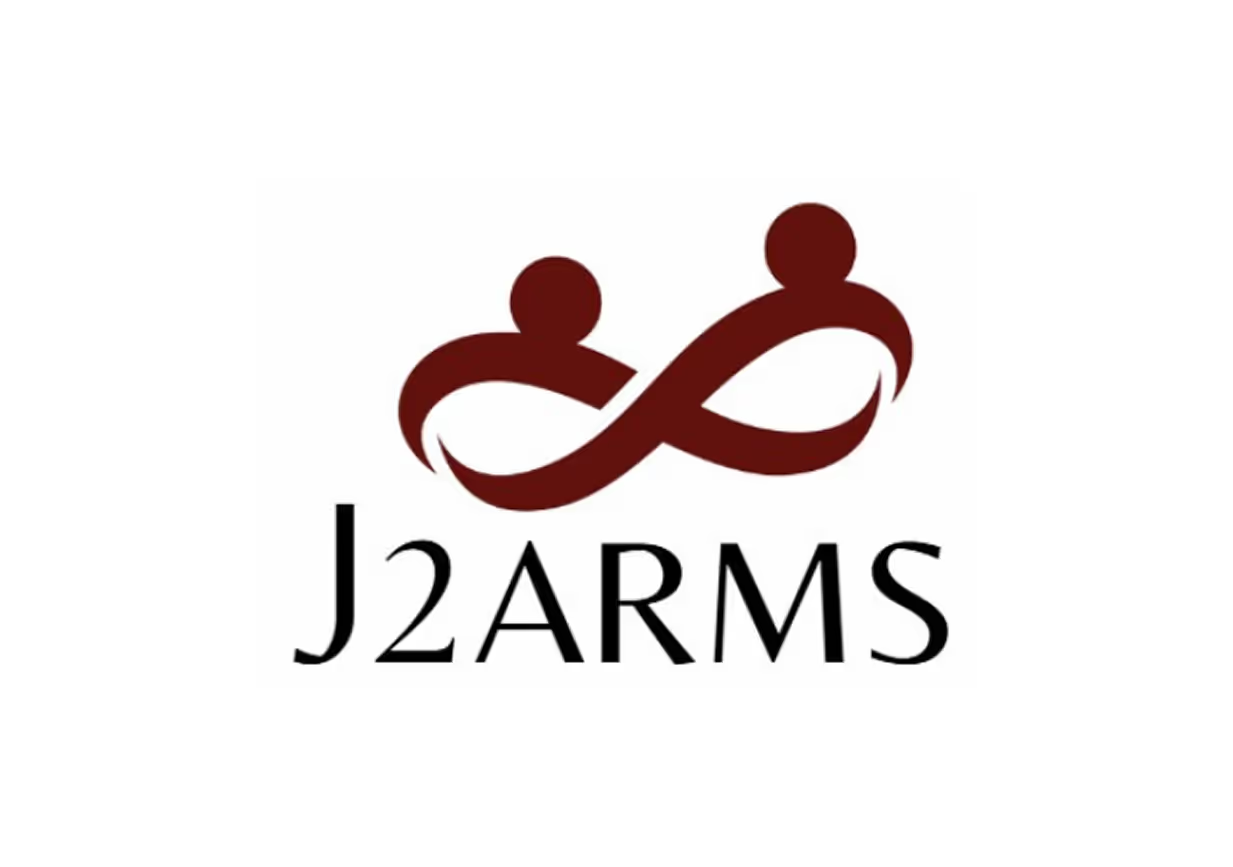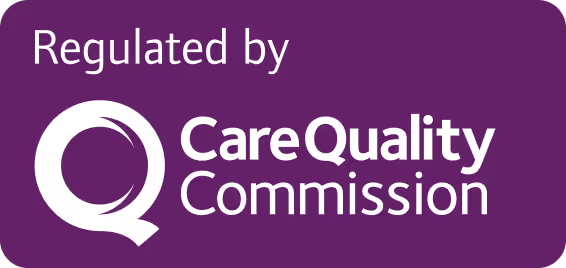How Much Is Alcohol Really Costing You? (It’s More Than You Think)
How Much Is Alcohol Really Costing You? (It’s More Than You Think)

Find the cost calculator here
How Much Is Alcohol Really Costing You? (It’s More Than You Think)
Most of us know alcohol can affect our health, but have you ever added up its full cost? Not just what you pay at the bar, but the food, the hangovers, the lost sleep and the hours that slip away the next day.
At Clean Slate Clinic, we’ve built a quick evidence-based calculator that helps you see the real impact of drinking - financial, physical and time. It’s private and takes less than two minutes.
Alcohol plays a big role in many people’s lives, from social lubrication, to celebration, to commiseration, alcohol is ever-present in British society, positioned as a solution to pretty much everything. But for many Brits - about 10% - alcohol has become a problem for them.
Stopping or cutting down isn’t about “willpower” or “discipline” - our brains are hard-wired to keep doing what we’ve always done. On top of this alcohol is a highly addictive substance, and we are surrounded by triggers - just watching tv for an evening, without alcohol featuring somewhere, is an impossible feat.
This is why, in population studies, only about 20–25 % of people who try to stop drinking without support maintain abstinence for a full year.¹ However, understanding how your drinking affects your financial and physical wellbeing, can help you set goals and create some momentum to change.
Our calculator draws on national data to estimate:
- your spend on alcohol (based on UK average prices)
- the extra costs that often follow drinking: late-night food; impulse buys; hangover meals
- the value of time lost to poor sleep and recovery
- and the long-term health impact if drinking continues at current levels
All numbers are private and for your eyes only.
What changes when you stop drinking
In addition to the direct financial savings you make, research shows measurable physical benefits within weeks:
Timeframe
Evidence-based improvements
2–4 weeks
Better sleep, improved hydration, lower resting heart rate
4–6 weeks
Blood pressure and liver enzymes return towards normal
3 months
Noticeable increase in energy, concentration, skin tone
6–12 months
Brain volume and cognitive function recover ²
12 months of sustained abstinence for one year or more reduces all-cause mortality risk by about 30 % compared with people who continue drinking heavily, restoring life expectancy close to population averages when abstinence is maintained for several years.
Key Takeaway
Sometimes thinking about ceasing or reducing drinking feels like something to lose - and there’s some truth to this - you might be losing your tried & tested coping mechanism, or the rituals you currently associate with celebrations or socialising.
But there is so much to gain - not just the financial savings, but you are literally gaining back life, both in the short-term through energy and productivity increases, and in the longer term, through gaining back years of life.
Sometimes when you see the numbers for yourself, those gains become clearer and it stops being abstract.
Curious?
Try the Cost Check-In yourself - no data saved, no judgement, just insight.
Launch the calculator →
Or if you’d like to talk through what a safe, supported change might look like:
Book a 15-minute confidential discussion → (link to Calendly)
The evidence behind the calculator
📊 Evidence sources
UK pricing data
- Office for National Statistics Retail Price Index (RPI series CZMS, KEF4; 2024).
- Public Health Scotland price-per-unit averages (≈ £2.05 on-trade; £0.62 off-trade).
Health impacts of alcohol use
- Wood et al., The Lancet (2018) - pooled analysis of >600 000 drinkers showing increased cardiovascular and cancer risk above ≈ 12.5 units/week.
- Regular consumption above this threshold associated with ~4–5 years lower life expectancy compared with low-risk drinkers.
Sleep and productivity
- Rohsenow et al., Addiction (2010); Arnedt et al., Occupational & Environmental Medicine (2011) - moderate evening drinking reduces REM sleep, impairs next-day performance and coordination.
Likelihood of maintaining sobriety
- Miller & Wilbourne, Addiction (2002) - only ≈ 20–25 % of people who stop drinking without support remain abstinent for 12 months; structured or medical support roughly doubles success rates.
Health improvements after abstinence
- Public Health England (2022) Liver Health Guidelines - liver function and blood pressure improve significantly within 4–6 weeks of cessation.
- Topiwala et al., BMJ Open (2017) - partial reversal of alcohol-related brain atrophy within 6–12 months of abstinence.
Life-expectancy recovery after 12 months’ abstinence
- Rehm et al., The Lancet Public Health (2021) - reductions in all-cause mortality risk after 12 months of abstinence.





Ready to get started?





.avif)




.avif)



%20(1)%20(1)%201%20(1).png)